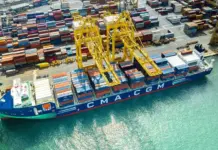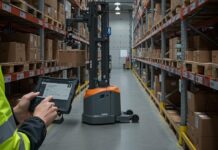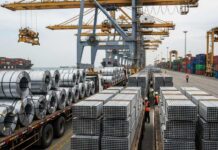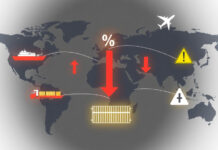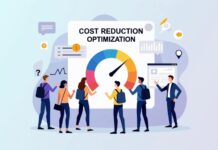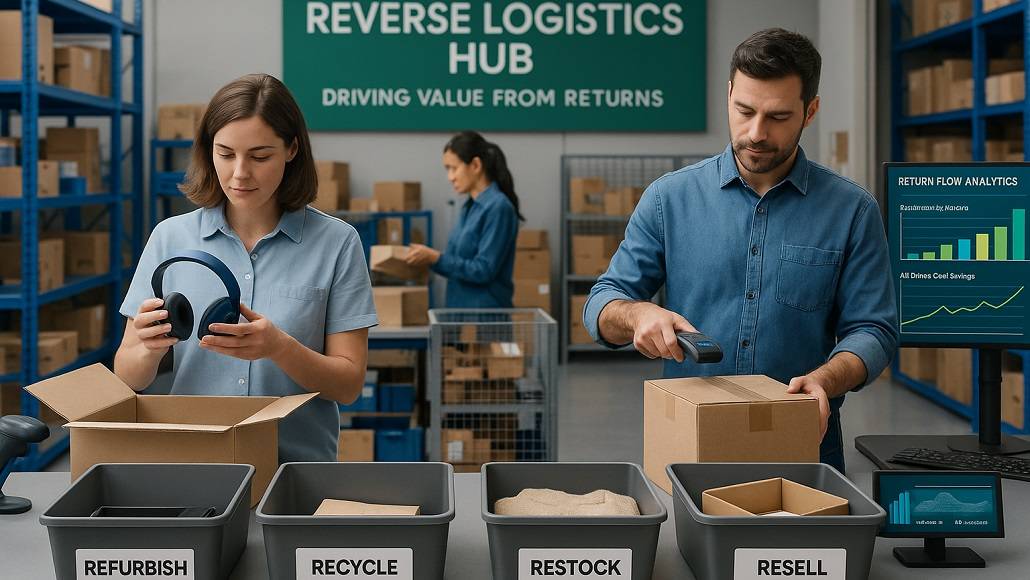The podcast illustrates how reverse logistics is becoming a realistic business option. Reverse logistics is not just benefiting supply chain efficiency but also reducing waste and energy consumption. Reverse logistics is the process of managing returns and reselling commodities or resources.
Listen to the Podcast:
Some noteworthy findings on how reverse logistics influences business opportunities include:
-
Impact of e-commerce
The number of shipments sent around the world in 2023 was 356 billion parcels, and it is expected to climb to 498 billion parcels by 2028.┬Ā More sellers want to reclaim sellable merchandise that has been returned by their customers and they want to inspect it, repackage it, or refurbish it, especially those sold items that carry a relatively high price point. Almost 80% of returned products can be repaired and resold and limits the waste and saves the customer and seller some money.
-
Industrial sector applications
Reverse logistics has also benefited industries such as automotive production, where a massive forged or cast part can be repaired and reconditioned on-site by trained trades and labor. This helps in reducing turnaround time which further can decrease the cost of freight. Reverse logistics in the industrial sector can range from minor cosmetic repairs to massive technological refurbishments. This industry require specialized equipment and skilled labor.
-
Brand integrity and business relationships
Reverse logistics providers are focusing on brand integrity and commercial relationships, in addition to storage and transit. They preserve brand identity and product quality through repair and refurbishment facilities. This act as manufacturers’ agents, providing confidence and cooperation throughout the supply chain. This growing integration opens up new avenues for potentially valuable and complex corporate collaborations.
-
Environmental and economic benefits
Reverse logistics offers environmental and economic benefits. This includes reduced waste and energy consumption. It also improves sustainability and financial returns by minimizing write-offs and increasing replenishment speed.
To sum up, this podcast showcases how reverse logistics is an established, ongoing, and profitable measure in today’s supply chains. It mitigates the expanding needs of both e-commerce and industrial firms while also offering environmental accountability and building commercial relationships. Reverse logistics will continue to generate significant revenue and inspire innovation as international trade expands by returning, repairing, and reselling items.
Download Podcast:┬ĀYou can download the podcast directly
Additional Resources:
For more details on Reverse Logistics: A Growing Business Opportunity, check out the original article Business Opportunities with a Reverse Logistics Scenario by Supply Chain Informs.




